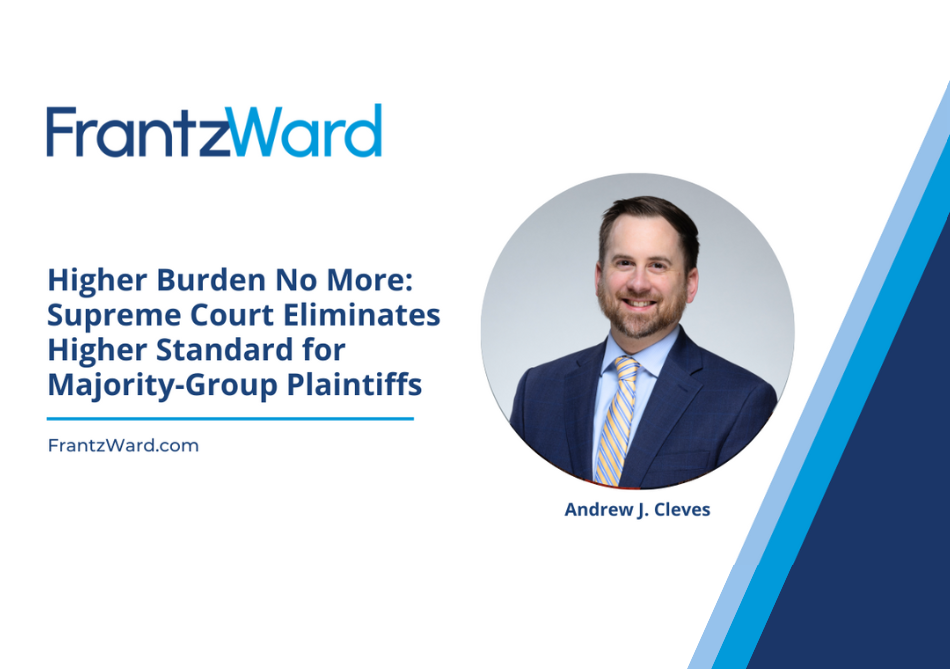Higher Burden No More: Supreme Court Eliminates Higher Standard for Majority-Group Plaintiffs
In Ames v. Ohio Dept. of Youth Services, the Supreme Court eliminated the higher standard majority-group plaintiffs had to meet in Title VII discrimination cases. Traditionally, a Title VII plaintiff must show they are a member of a protected class and, in many circumstances, that they were treated less favorably than similarly situated non-protected employees. In the Sixth Circuit, which covers Ohio, Michigan, Kentucky, and Tennessee, plaintiffs who were members of a majority-group had an additional burden to show background circumstances to support the suspicion that the defendant was that unusual employer who discriminates against the majority.
In this case, a heterosexual former Ohio Department of Youth Services employee brought a Title VII discrimination claim. She claimed that she applied for and was denied a promotion in favor of a less qualified lesbian woman (who allegedly did not even apply for the job). Later, the plaintiff claimed she was demoted from her position and replaced by a gay man (who also purportedly did not seek the position). In her lawsuit, the plaintiff claimed she was discriminated against because she was not a member of the LGBTQ+ community, and her employer had an anti-heterosexual bias.
The Supreme Court’s decision rejecting the Sixth Circuit’s “background circumstances” rule was unanimous. The Court found that the rule unfairly held majority-group plaintiffs to a higher standard by requiring them to bear an additional burden at the prima facie stage. However, “the text of Title VII’s disparate-treatment provision draws no distinctions between majority-group plaintiffs and minority-group plaintiffs.”
The Court’s approach and ruling in this matter includes useful reminders and a suggestion of what may be forthcoming. First, the decision highlights the importance of making sound, justified decisions that are supported with sufficient documentation. The Court did not conclude the employer improperly denied the plaintiff a promotion or wrongfully demoted her. Rather, it said the plaintiff does not have a higher burden of proof than other Title VII plaintiffs. Second, in a concurring opinion, Justice Clarence Thomas suggested that the McDonnell Douglas framework requires too much proof at summary judgment. This is not the first suggestion from the Court that the McDonnell Douglas framework may be at risk. Any change to that framework/standard would be seismic, as it has governed Title VII discrimination cases since the Supreme Court’s 1973 decision.
Frantz Ward will continue to monitor legal developments on these topics. If you have any questions on the Ames v. Ohio Dept. of Youth Services decision, or any of the issues discussed, please do not hesitate to contact Andrew Cleves or another member of the Frantz Ward’s Labor and Employment Practice Group.


